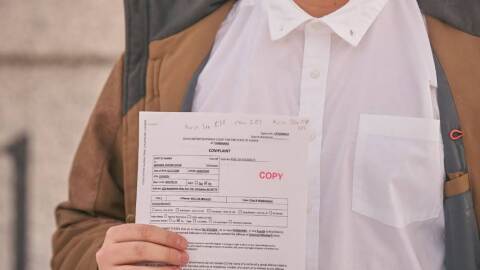-
“It shouldn’t be acceptable for this art to be put alongside these real pieces,” he said. “It chews up and it spits out art made by other people.”
-
“If you're flying rockets in space, and you're not having fun, you're doing it wrong,” said the researcher who led the mission.
-
NewsThe herds are growing, but there are looming disagreements about future hunts, and about what should happen if the reintroduction conflicts with oil, gas and mining interests.
-
NewsAlaska's top aerospace official says that means huge opportunities could come for the state’s two rocket launch sites on Kodiak Island and near Fairbanks.
-
The global space-launch industry is welcoming the prospect of launching rockets from Alaska’s two spaceports to relieve the backlog at larger facilities in the Lower 48. Top officials with Alaska’s two civilian launch facilities say their new partnership also will promote development of Alaska’s space-launch industry.
-
Officials with the University of Alaska Fairbanks Geophysical Institute and Alaska Aerospace Corporation announced a wide-ranging agreement Tuesday to tap into the growing market for rocket launches from the state’s two launch facilities.
-
NewsWildlife managers, scientists and students are raising the alarm over the potential loss of Alaska’s cooperative fish and wildlife research unit.
-
NewsThe company’s goal is in line with President Trump’s attempt to bring manufacturing back to America. But the White House is also freezing and cutting federal grants that have been key for the company to ramp up production.
-
Contractors are nearing completion of a fourth missile field at Fort Greely that’ll increase the number of interceptor missile silos there to 62. But two University of Alaska Fairbanks military experts worry the technology is rapidly becoming obsolete.
-
NewsAccording to an internal budget document, the Trump administration is seeking to end nearly all of NOAA’s climate research.
-
Scientists at Alaska’s flagship research university staged a demonstration Tuesday to protest threats to research funding, federal government reorganization and the freezing of science grants. Two dozen researchers gathered on the plaza in front of the Margaret Murie building at University of Alaska Fairbanks.
-
NewsIt’s part of an experiment called “AWESOME,” which seeks to observe how auroras affect Earth’s upper atmosphere.
















